This article was medically reviewed by Lacy Windham, MD. Lacy Windham, MD, is a Board-Certified Obstetrician & Gynecologist in Cleveland, Tennessee. Dr. Windham attended medical school at the University of Tennessee Health Science Center in Memphis. Her residency was completed at Eastern Virginia Medical School in Norfolk, Virginia. She was the recipient of multiple awards during her residency training, including Most Outstanding Resident in Maternal Fetal Medicine, Most Outstanding Resident in Oncology, Most Outstanding Resident Overall, and Special Award in Minimally Invasive Surgery.
There are 19 references cited in this article, which can be found at the bottom of the page.
This article has been viewed 2,987,763 times.
Estrogen is a natural hormone found in both sexes. Keeping estrogen at a healthy level is important for everyone, but cisgender women need more estrogen for normal bodily functions, such as conceiving children. During menopause, estrogen levels decrease significantly. Learn about how simple changes to your lifestyle and diet may increase your estrogen.
Steps
Seeking Medical Care
-
1Watch for symptoms. If you are experiencing symptoms that indicate that your hormone levels are imbalanced, or symptoms that interfere with your well-being, visit your doctor. Remember that hormonal changes are quite common, particularly in women going through menopause. However, if you are not within the normal age range for menopause or perimenopause or if your symptoms are intense, you may want to visit the doctor. Symptoms may include:
- Hot flashes or trouble sleeping
- Changes in mood or moodiness
- Changes in sexual function or decreased fertility
- Altered cholesterol levels
-
2Visit your doctor. Before you start an estrogen treatment program, ask your doctor about the effects of estrogen on your body. While estrogen insufficiency can result in problems, estrogen levels that are too high (or prolonged exposure at the wrong times) can lead to menstrual disturbances, ovarian cysts, and breast cancer.
- There are many conditions that can cause symptoms such as hot flashes, loss of libido, and other symptoms associated with low estrogen levels. Do not assume that estrogen levels are the cause of your symptoms. Consult with your doctor before starting any treatment to increase your estrogen, including taking natural or herbal supplements.
Advertisement -
3Have your estrogen levels tested. There are a variety of tests available for determining hormone levels. Your doctor will likely have you take a blood test. Your blood may also be tested for FSH (Follicle-Stimulating Hormone), which is responsible for regulating estrogen and progesterone production in the ovaries.[1]
- You should tell your doctor about any medications and supplements you are taking before having the test done. You should also inform your doctor about any hormonal contraceptive you use, as this could affect your test. You should discuss medical conditions including thyroid disease, sex-dependent hormone tumors, ovarian cysts, and unusual vaginal bleeding with your doctor, as they could affect your FSH levels.[2]
- The FSH test is usually drawn on the second or third day of your period.
- There are three types of estrogen; estrone, estradiol, and estriol.[3] Estradiol is the type of estrogen that is normally measured with testing, and a normal range is 30-400 pg/mL for premenopausal women (depending on where you are in your menstrual cycle) and 0-30 pg/mL for postmenopausal women.[4] Levels lower than 20 pg/mL may cause hormonal symptoms such as hot flashes.
- The value of checking estrogen levels is controversial, as levels fluctuate widely throughout the day. However, it can be helpful in conjunction with a physical exam, history, and other testing.
-
4Try estrogen therapy. There are a variety of estrogen therapies available, including pills, skin patches, and topical gels and creams. There are also vaginal estrogens available in the forms of tablets, rings, or creams that are inserted directly into the vagina.[5] Talk to your doctor about the option that would be best for you.
- However, if you have a uterus, you should not allow anyone to start supplementing you with estrogen only. Taking estrogen alone, without progesterone, increases the risk of uterine cancer.
Lifestyle and Diet Adjustments
-
1
-
2Start exercising moderately. Exercise has been linked to a drop in estrogen levels. Avoid excessive exercising, but get regular exercise in. Not only is moderate exercise healthy, it may also decrease the risk of breast cancer in women and increase overall longevity.[7]
- Athletes may experience a drop in estrogen levels. This is because women with low levels of body fat have more trouble producing estrogen. If you are an athlete or have low body fat levels, see your doctor for a good way to replenish your estrogen.[8]
-
3Maintain a healthy diet. Your endocrine system needs a healthy body in order to work properly and produce normal levels of estrogen. Women cannot obtain estrogen from their diet, but eating a wide variety of fresh foods gives your system the best chance to naturally produce estrogen.[9]
-
4Eat soy and drink soy milk. Soybean products, especially tofu, contain genistein, which is a plant product that mimics the effects of estrogen. In large quantities, these may be able to lessen menopausal symptoms, but soy may not make a significant difference in hormone levels.[10] If you want to try incorporating soy products into your diet, you may try the following:[11]
- Edamame
- Miso, in small amounts
- Soy nuts
- Tempeh
- Textured Soy Product (TSP), or foods made from textured soy flour.
-
5Reduce your sugar intake. Sugar can lead to a hormone imbalance in the body.[12] Switch from simple carbs to a lower-carb, whole-grain diet.
- For example, instead of white flour, opt for whole grain flour. Use whole grain pasta or brown rice.
-
6Drink coffee. Women who drink more than two cups of coffee (200 mg of caffeine) per day may have higher estrogen levels than women who don't. While caffeine may increase estrogen levels, it does not seem to increase fertility. If you're trying to increase estrogen in order to ovulate, coffee and caffeine may not help much.
- Use organic coffee. Most coffee is a heavily sprayed crop, so drinking organic coffee should reduce your exposure to herbicides, pesticides, and fertilizers. Use unbleached filters. Many white coffee filters contain bleach that can leach out into the final product, so try to find unbleached coffee filters for a safer brew.
- Consume coffee and other caffeinated beverages in moderation. You should not consume more than 400mg of caffeine per day, and you should aim to consume much less than that on average.[13]
Herbal Remedies
-
1Take chasteberry supplements. This herb can be found in pill form in most health stores. Follow the package instructions for the specific dosage. Chasteberry may help relieve symptoms of premenstrual syndrome, although scientific evidence is currently limited.[14] However, it has not been proven to reduce menopausal symptoms, increase lactation, or increase fertility.
- Chasteberry has been shown to influence estrogen levels.[15] However, the exact nature and level of the effect has not been widely established.[16]
- Avoid taking chasteberry if you are using: birth control pills, antipsychotic drugs, medications used to treat Parkinson's disease, or Metoclopramide, a dopamine-affecting drug.
-
2Choose foods that are high in phytoestrogens. Phytoestrogens act like an estrogen substitute in the body and occur naturally in several plants and herbs. Consider using phytoestrogens if you're trying to alleviate symptoms of low estrogen levels, or menopause. Take phytoestrogens in moderation. You may actually want to avoid phytoestrogens if you're trying to conceive. Phytoestrogens have been linked to infertility and developmental problems, although you would need to consume massive quantities of these foods to ingest clinically significant levels of phytoestrogens.[17] Foods and herbs that contain phytoestrogens include:[18] [19]
- legumes: soybeans, peas, pinto and lima beans
- fruits: cranberries, prunes, apricots
- herbs: oregano, sage, licorice
- whole grains
- flaxseed
- vegetables: broccoli and cauliflower
-
3Make an herbal tea. Several herbal teas or tisanes may increase your estrogen levels or provide relief for symptoms of menopause or premenstrual syndrome without affecting your estrogen levels. Steep the herbs in a cup of hot water for five minutes.
- Black and green tea. Black and green teas contain phytoestrogens.[20]
- Dong quai (Angelica sinensis). Used in Chinese traditional medicine, this herb may reduce symptoms of premenstrual syndrome. Do not use it if you use blood-thinning drugs like warfarin.
- Red clover. Red clover contains isoflavones, which may help reduce symptoms of menopause or premenstrual syndrome.
-
4Eat flax seeds. Flax seeds have one of the highest concentrations of phytoestrogens. Eat up to 1/2 cup of ground flax seeds to get the most effect. They're also high in omega-3 fatty acids, which may reduce your risk of heart disease, cancer, stroke, and diabetes.[21]
- Adding flax seed to your breakfast cereal or in healthy smoothies is a good way to easily eat the seed.
Expert Q&A
Did you know you can get expert answers for this article?
Unlock expert answers by supporting wikiHow
-
QuestionAre ovulator prediction kits a good way to check estrogen levels?
 Aimee Eyvazzadeh, MD, MAAimee Eyvazzadeh is a Fertility Specialist and the Founder of The Egg Whisperer Show, a fertility care program focusing on fertility education based in the San Francisco Bay Area. Her work has been featured in magazines such as People, Forbes, and Marie Claire, and she has been featured on the Today Show, Good Morning America, and CNN. She earned an MD from the University of California, Los Angeles in 2001, completed an OB/GYN residency at Harvard Medical School in 2005, and finished a fellowship in Reproductive Endocrinology and Infertility at University of Michigan, where she also completed an MPH.
Aimee Eyvazzadeh, MD, MAAimee Eyvazzadeh is a Fertility Specialist and the Founder of The Egg Whisperer Show, a fertility care program focusing on fertility education based in the San Francisco Bay Area. Her work has been featured in magazines such as People, Forbes, and Marie Claire, and she has been featured on the Today Show, Good Morning America, and CNN. She earned an MD from the University of California, Los Angeles in 2001, completed an OB/GYN residency at Harvard Medical School in 2005, and finished a fellowship in Reproductive Endocrinology and Infertility at University of Michigan, where she also completed an MPH.
OB/GYN & Fertility Specialist
-
QuestionWhat is the purpose of using estrogen in the vagina?
 Zora Degrandpre, NDDr. Zora Degrandpre is a Natural Health Doctor and Licensed Naturopathic Physician in Vancouver, Washington. She is a grant reviewer for the National Institutes of Health and the National Center for Complementary and Alternative Medicine. She received her ND from the National College of Natural Medicine in 2007.
Zora Degrandpre, NDDr. Zora Degrandpre is a Natural Health Doctor and Licensed Naturopathic Physician in Vancouver, Washington. She is a grant reviewer for the National Institutes of Health and the National Center for Complementary and Alternative Medicine. She received her ND from the National College of Natural Medicine in 2007.
Natural Health Doctor
-
QuestionHow do I increase ovulation?
 Lacy Windham, MDLacy Windham, MD, is a Board-Certified Obstetrician & Gynecologist in Cleveland, Tennessee. Dr. Windham attended medical school at the University of Tennessee Health Science Center in Memphis. Her residency was completed at Eastern Virginia Medical School in Norfolk, Virginia. She was the recipient of multiple awards during her residency training, including Most Outstanding Resident in Maternal Fetal Medicine, Most Outstanding Resident in Oncology, Most Outstanding Resident Overall, and Special Award in Minimally Invasive Surgery.
Lacy Windham, MDLacy Windham, MD, is a Board-Certified Obstetrician & Gynecologist in Cleveland, Tennessee. Dr. Windham attended medical school at the University of Tennessee Health Science Center in Memphis. Her residency was completed at Eastern Virginia Medical School in Norfolk, Virginia. She was the recipient of multiple awards during her residency training, including Most Outstanding Resident in Maternal Fetal Medicine, Most Outstanding Resident in Oncology, Most Outstanding Resident Overall, and Special Award in Minimally Invasive Surgery.
Board Certified Obstetrician & Gynecologist If you have a regular menstrual cycle, it is likely that you are ovulating regularly, but you could confirm with over-the-counter ovulation predictor kits. If you are not ovulating, a common cause is PCOS. Modest weight loss often restores ovulation in this circumstance. Otherwise there are effective medications to help.
If you have a regular menstrual cycle, it is likely that you are ovulating regularly, but you could confirm with over-the-counter ovulation predictor kits. If you are not ovulating, a common cause is PCOS. Modest weight loss often restores ovulation in this circumstance. Otherwise there are effective medications to help.
Warnings
- Ingesting more than the recommended amount of flax seed can decrease the effectiveness of some medications.⧼thumbs_response⧽
- Do not begin taking supplements without first consulting your doctor.⧼thumbs_response⧽
- Women who are pregnant can have estrogen levels rise by 100 times the normal levels.[22] If you're pregnant, don't try to increase your estrogen levels or take any supplements or medications without talking to your doctor.⧼thumbs_response⧽
References
- ↑ http://www.healthline.com/health/fsh
- ↑ http://www.healthline.com/health/fsh#Purpose3
- ↑ http://www.webmd.com/women/estrogens
- ↑ http://www.nlm.nih.gov/medlineplus/ency/article/003711.htm
- ↑ http://www.mayoclinic.org/diseases-conditions/perimenopause/basics/treatment/con-20029473
- ↑ 6.06.1http://www.ncbi.nlm.nih.gov/pmc/articles/PMC1281267/
- ↑ http://www.ncbi.nlm.nih.gov/pubmed/21903887
- ↑ http://www.webmd.com/women/guide/normal-testosterone-and-estrogen-levels-in-women#4
- ↑ http://www.healthline.com/health/menopause/diet-hormones
- ↑ http://www.ncbi.nlm.nih.gov/pmc/articles/PMC1480510/
- ↑ http://www.ucsfhealth.org/education/a_guide_to_foods_rich_in_soy/index.html
- ↑ http://www.sciencedaily.com/releases/2007/11/071109171610.htm
- ↑ http://www.mayoclinic.org/healthy-lifestyle/nutrition-and-healthy-eating/in-depth/caffeine/art-20045678
- ↑ http://www.aafp.org/afp/2005/0901/p821.html
- ↑ http://www.ncbi.nlm.nih.gov/pubmed/25878948
- ↑ https://www.mskcc.org/cancer-care/integrative-medicine/herbs/chasteberry
- ↑ http://e.hormone.tulane.edu/learning/phytoestrogens.html#health_risks
- ↑ http://academicsreview.org/reviewed-content/genetic-roulette/section-6/6-3-endocrine-disruptors/
- ↑ http://www.newhealthguide.org/Normal-Estrogen-Levels.html
- ↑ http://www.webmd.com/vitamins-supplements/ingredientmono-997-herbs%20with%20estrogenic%20activity%20(black%20tea).aspx?activeingredientid=997&activeingredientname=herbs%20with%20estrogenic%20activity%20(black%20tea)
- ↑ http://www.webmd.com/diet/features/benefits-of-flaxseed
- ↑ http://www.newhealthguide.org/Normal-Estrogen-Levels-In-Women.html
About This Article
Low estrogen levels can affect your health and mood, but fortunately there are things you can do to increase estrogen in your body. Make sure you’re eating a healthy, balanced diet so your endocrine system, which produces estrogen, is working properly. Moderate exercise is also important to stay healthy, but avoid excessive exercise since it can lower your estrogen levels. Being underweight can also reduce estrogen production, so make sure you’re eating enough to maintain a healthy body weight. Soy products contain phytoestrogens, which mimic estrogen in the body and may help reduce symptoms of menopause. Talk to your doctor before incorporating phytoestrogens into your diet since they may not be right for everyone. Some herbal supplements, like chasteberry, black cohosh, evening primrose oil, and red clover, may help increase estrogen levels, but talk to your doctor first since herbal supplements can interfere with certain medications. If natural remedies aren’t helping with your symptoms, talk to your doctor. They can test your estrogen levels and recommend the best treatment, which may include hormone replacement therapy. For advice from our Medical co-author on how to get your estrogen levels tested, keep reading!

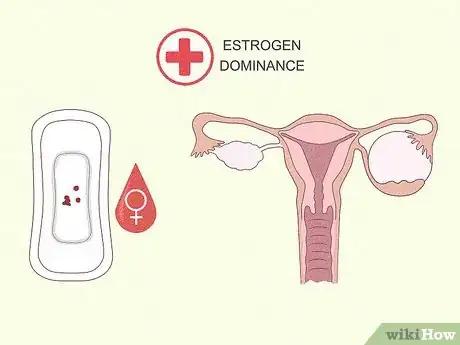
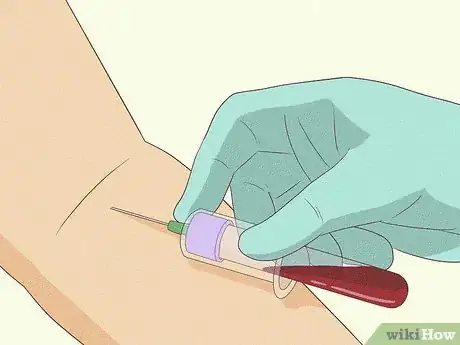
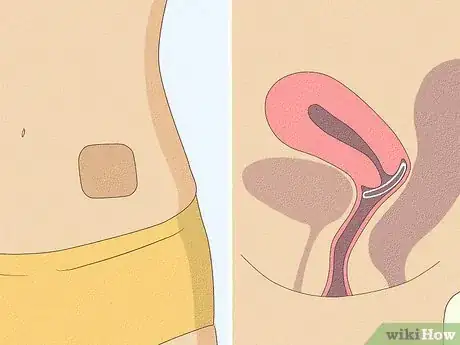
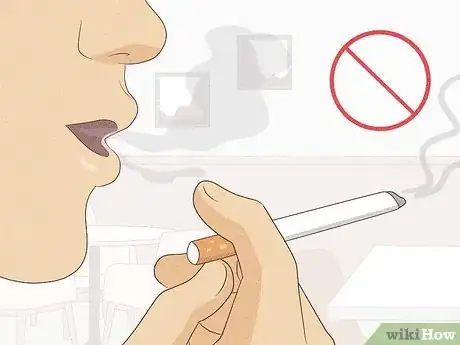



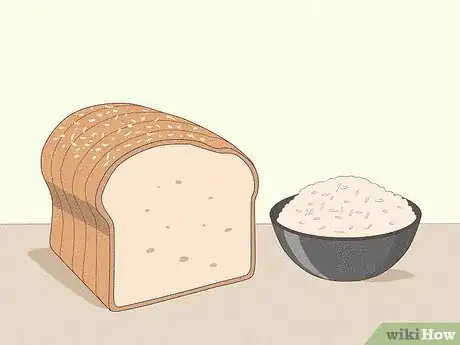
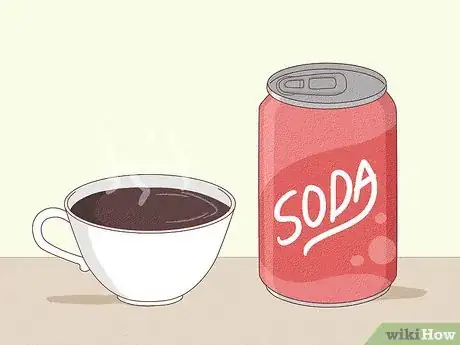




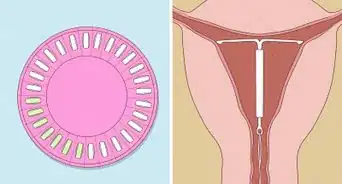
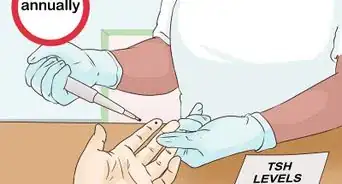


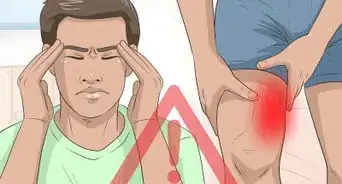







-Step-12-Version-2.webp)
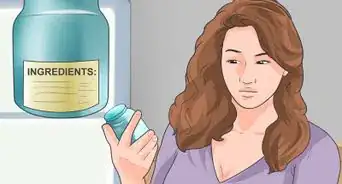









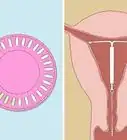
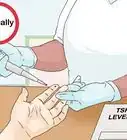






































Medical Disclaimer
The content of this article is not intended to be a substitute for professional medical advice, examination, diagnosis, or treatment. You should always contact your doctor or other qualified healthcare professional before starting, changing, or stopping any kind of health treatment.
Read More...